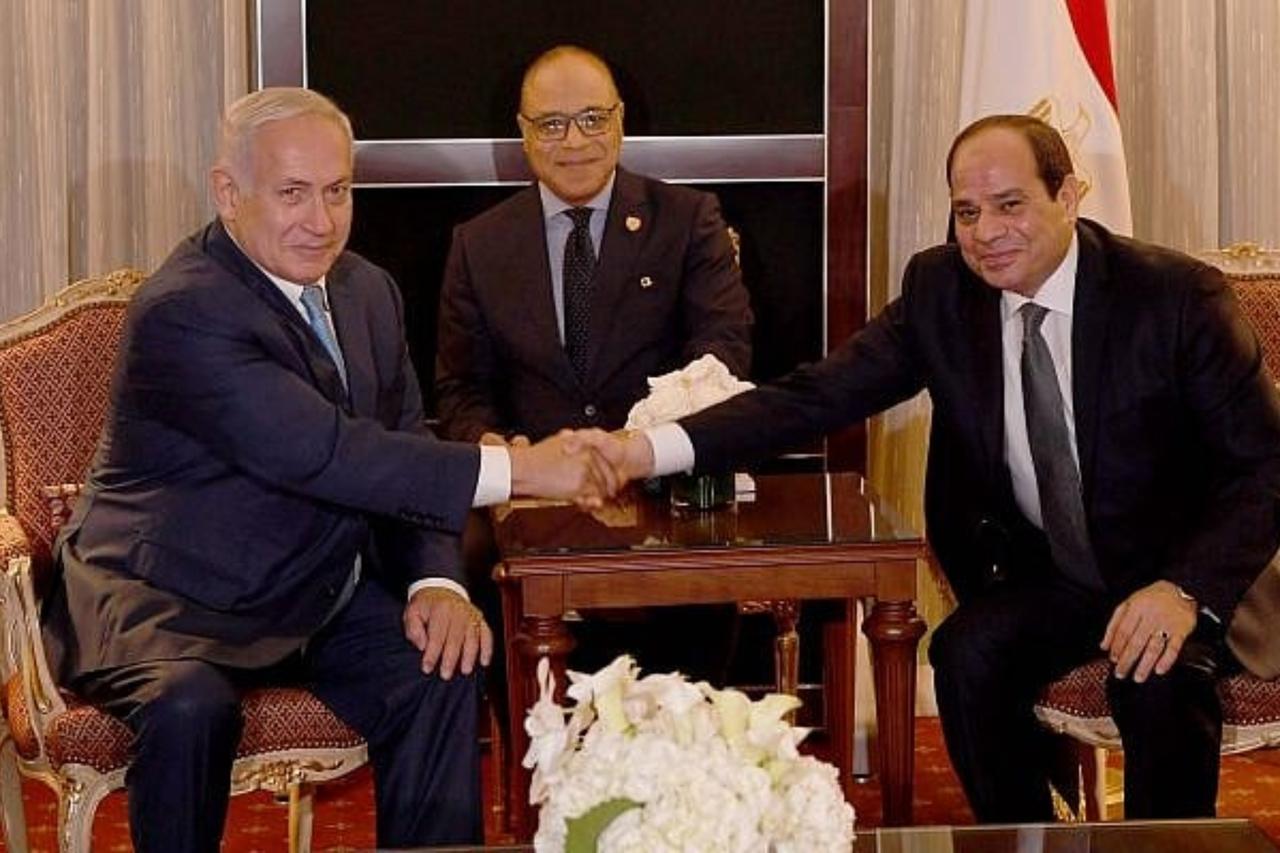
Prime Minister Benjamin Netanyahu and Energy Minister Eli Cohen are set to reconsider the recently signed gas agreement between Egypt and Israel, according to a report by the Israeli newspaper Israel Hayom.
The newspaper said that the move comes amid reports that Cairo “violated” the security agreement of the 1979 Egypt–Israel Peace Treaty, signed in Washington following the 1978 Camp David Accords.
Key provisions of the treaty include ending the state of war, normalizing relations, and the withdrawal of Israeli forces from the Sinai Peninsula.
So far, no official statements have been issued by either the Egyptian or Israeli sides regarding the report.
The newspaper cited officials saying Netanyahu has “ordered that the massive gas deal between the Leviathan partners and Egypt not proceed without his approval.”
The report also noted that Egypt is in urgent need of Israeli gas and is willing to pay a price far higher than that paid by Israeli consumers.

The Egypt–Israel gas deal is valued at $35 billion. On Aug.7, Neomed Energy—one of the partners in Israel’s Leviathan gas field—announced the signing of an agreement to supply natural gas to Egypt until 2040.
Neomed CEO Yossi Abu described the deal as a “money mine for Israelis,” while Cohen called it “the largest in Israel’s history.”
Under the agreement, Egypt will pay $35 billion over 14 years for the gas, while the Israeli Finance Ministry is expected to collect millions in taxes and revenues.
The announcement sparked widespread anger on social media, with critics arguing that Egypt is effectively “funding Israel” at a time when Palestinians in Gaza and the West Bank face violence and deprivation.
Meanwhile, Egyptian officials defended the deal as serving Egypt’s strategic interests.
Egyptian Prime Minister Mostafa Madbouly noted that the original agreement was signed in 2019, and the recent changes only increased contracted quantities by 130 billion cubic meters, with expected revenues of $35 billion and an extended supply period until 2040.
Egyptian Petroleum Ministry spokesperson Moataz Atef clarified that reports of a new deal are “inaccurate.”
He explained that the update is simply a revision of an existing agreement aimed at maximizing energy resources and ensuring supply security until 2040.
Worsening the situation, that gas deal came at a time when several European countries were moving to scale back or terminate their agreements with Israel.
Sweden and the Netherlands called on the European Union to suspend its trade agreements with Tel Aviv due to Israel’s attacks on Gaza.
Notably, it was Israel—not Egypt—that chose to suspend the deal, despite widespread criticism aimed at Cairo over the agreement.

The Netanyahu decision to postpone the deal opens doors to various possible scenarios. Experts see that Netanyahu is attempting to create a political stir, send signals to his domestic audience, and increase pressure on Egypt.
Former Egyptian Foreign Minister Mohamed El-Orabi told Asharq Al-Awsat that Netanyahu appears to be “throwing a stone” amid his insistence on straining relations with everyone, not just Egypt, to gauge reactions.
Meanwhile, former Egyptian Minister Osama Kamal stated that the gas agreement cannot be used as a leverage tool against Egypt, emphasizing the country’s preparedness to handle such challenges.
"However, Egypt is prepared for such challenges, despite the tensions along its eastern, southern, and western borders, as well as U.S. and Israeli pressure, and will remain unresponsive to any calls or discussions regarding the displacement of Palestinians,” he said
On another note, Egyptian blogger and media figure Loay Al-Khatib wrote on X that the postponement indicates the deal is entirely in Egypt’s favor.
The Egyptian negotiator successfully turned the contract amendment terms to Egypt’s advantage, he noted, adding that had the agreement truly benefited Israel, as critics claimed, it would not have been delayed.
Since the 1979 peace agreement between Egypt and Israel, relations between the two countries have not experienced such strain as they do currently due to the war in Gaza.
Tensions escalated particularly after Israel’s occupation of the “Philadelphia” area near the Egyptian border in violation of the peace treaty, followed by the nullification of the ceasefire agreement reached last January through Cairo’s mediation.